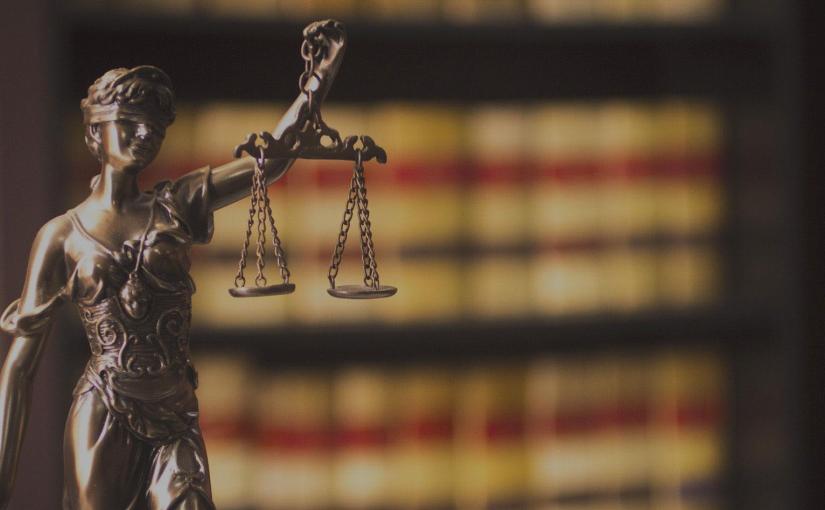Walter Elias Brass, Esq. was a man of traditional values. He’d developed a machine-like study routine during his years in high school with which he went on to graduate from Princeton Law School in 1968 summa cum laude. After serving as lead prosecutor during the landmark conspiracy trial of notorious cult leader Yuri Hilks, Walter went on to establish the Brass, Montford & Cohen law firm with college friends Summer Montford and A.B. Cohen. The fame generated from the Hilks trial led to the firm’s booming success; Walter decided to finally settle down with his then-girlfriend Rebecca Tibulti, and in the summer of 1971 the couple gave birth to a son, Lazarus. Following Summer Montford’s semi-controversial decision to elope with Walter’s brother Horace – which resulted in both her becoming “Summer Brass” as well as a costly name change to all the law firm’s signage – Walter took on the task of imbuing his son with all the tenacity and love for criminal prosecution that had fueled his life up until that point.
Lazarus T. Brass, Esq. sat along the shoreline of Massachusetts Bay, reflecting on his father’s life, fondly flipping through his many memories of statute memorization, and public speaking drills. He’d received word via his secretary of Walter Brass’ passing, despite the event in question actually taking place – precipitated by a undiagnosed heart valve issue – just outside the door to Lazarus’ office. Lazarus had been on lunch at the time, reclining on a luxury leather sofa with a pastrami on rye clenched in his transparent fingers; the very cured beef treat that doctors would later imply was at the root of his father’s heart problems
.
He’d been counting on his father’s aid in tracking down Medina, recalling Walter Brass’ famous independent efforts to apprehend Yuri Hilks and the rest of his so-called “Unit”. Hilks was the focus of a massive manhunt following the kidnap/murder of Boston police commissioner Francis Cahier’s eldest son Marcus, during which over fourteen separate state police departments had unified in their efforts only to be thwarted time and again by the elusive cult leader. Brass’ father had met a rather bizarre pair of teenagers at a local diner called Stack’s amid the far reaching investigation, and posing as an LSD manufacturer, had agreed to join them for a party at nearby apartment building.
The youths spent the journey to the party expressing a deep adoration for a man called “Judas St. Christ” whom they alleged was the messiah reborn, as well as a man that would find great use of a psychedelics supplier. Upon arriving at the building, the pair ushered Brass’ father to the basement where a hole had been cut through the laundry room wall using illegally obtained boring machinery and covered over by the kinds of stringed beads one might expect to find guarding the entrance to an herbalist’s master bathroom. Inside sat Yuri Hilks, posted cross-legged under an uprooted pine tree, fatter than allowed him very much mobility, with a crown of thorns perched atop his head wrought more in the shape of King Arthur’s royal cap than that of any Judeo-Christian idol Walter Brass had ever heard of.
This had been, in fact, the very first time any member of law enforcement had ever even seen Hilks, largely due to the Mafia-esque power hierarchy he’d established within his “community” which kept him far separated – through the use of a variety of bagmen and enforcers – from any of the criminal aspects of his enterprise, and the chance meeting proved a significant break for both the police efforts to apprehend Hilks, and the complex prosecution case Brass would eventually build to take him down. It was during their first encounter that Brass caught wind of a philosophical concept referred to by the group as “The Big Bottle-Up” which, as Hilks explained it in his own wildly colorful, and wholly prophetic words, consisted of the group’s final collective stripping of their “human shells” at which point their spiritual selves would bind into one great hive-mind, and settle in to a new form – that of a “pure” child – who’s body they will rule with their collaborative mind as the “perfect manifestation of total human consciousness”. It was through this psychotic, hazy blend of psychedelic transcendence, and communal reincarnation that Brass first pieced together the truth regarding Marcus Cahier’s death: the boy had been the group’s first proposed “vessel”, and indeed, had not survived the bizarre ordeal. This truth, however depressing and tragic, served as the inspiration for Walter Brass’ ultimate plan to shut the monster Yuri Hilks down for good, and he was determined then more than ever before to ensure that Cahier’s death would not have been in vain. For Walter Brass too had a young son, and little Lazarus Brass may not have been perfect, but he would certainly make an adequate “vessel”.
[To be continued]
Copyright Wonder Void Studios 2018
Thanks for taking the time to read this continuation of my short story Lazarus T. Brass, Esq., their will be more to come as I think it up. Be sure to follow us for a new short story every Thursday, in addition to a new issue of our webcomic So Fantastic every Sunday, and a new chapter in my ongoing Scifi/fantasy serial Kika Gumi and the Prism Cult every Tuesday. Follow us on Twitter: @ItsMrGChris and @RinniKipp for all sorts of flash fiction, illustration, and news regarding our upcoming projects. Thanks again for your continued support, we’ll see you next time!

